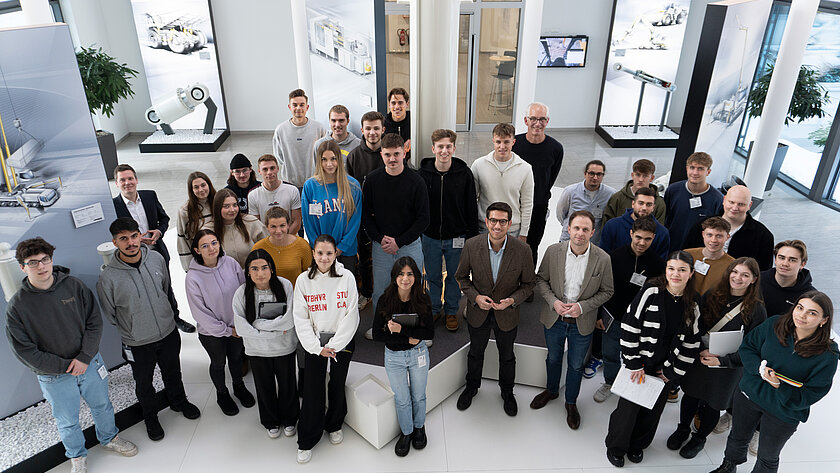Dr. Andreas Lugert, Global Head of Operational Excellence, began by introducing the Liebherr company and the Components division. Component production is very important within the Liebherr Group, as many of Liebherr's everyday products cannot be produced without the supply of technically sophisticated and innovative components. These include combustion engines for large machines, gearboxes and cable winches as well as injection systems.
Jan Winter, Product Manager for Hydraulic Cylinders, then gave a comprehensive overview of the plant's product portfolio: from hydraulic cylinders for mobile or crawler excavators, which are produced in large quantities, to hydraulic cylinders over ten meters long for mobile or crawler crane applications. He explained the special features of the products in terms of customer requirements and lightweight construction and emphasized the crucial role of technical expertise and manufacturing experience. This presentation illustrated to the students the interesting and challenging task of a product manager who tries to develop the best possible product for the customer between technology, production and sales and to be economically successful at the same time.
Markus Lehle, head of the in-house consultancy OPEX-Consulting, then outlined the challenges and tasks that need to be overcome when designing new production systems and optimizing processes. Here, too, the range is wide and complex, whether in the context of factory planning when developing a new production site or in the regular improvement of existing processes according to lean principles. Internal consultants often accompany projects from the initial idea through to implementation - industrial engineers are ideally suited for this.
The second half of the visit included a tour of the production hall along the value creation process. At the individual stations, selected details were used to explain the issues and challenges that arise in the manufacture of hydraulic cylinders. Learning about such production processes not only in theory, but actually standing next to a six-metre-long, three-tonne hydraulic cylinder was an extraordinary experience for the students and highlighted the size and complexity of this special product.
Contact
Prof. Dr. Stefan Distel







